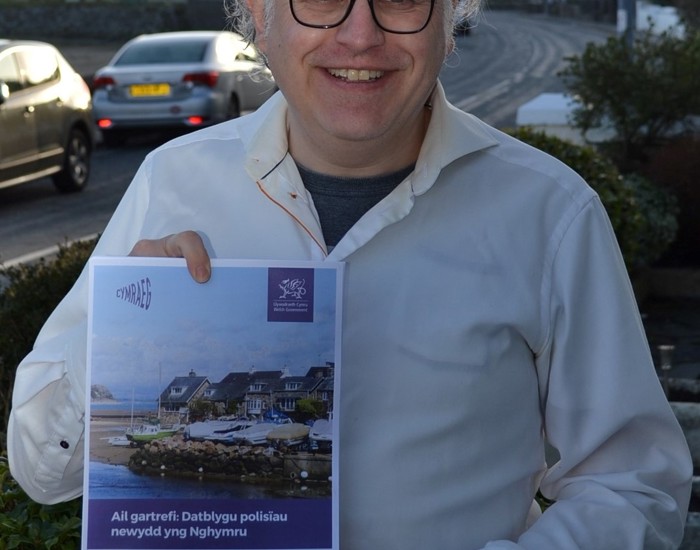The author of a new report commissioned by the Welsh Government’s Minister for Mental Health, Wellbeing and Welsh Language has made 12 policy recommendations to the Welsh Government to address the second homes crisis in Wales and its impact on Welsh speaking communities.
After Swansea University’s Academi Hywel Teifi received a grant from the Coleg Cymraeg Cenedlaethol, Dr Simon Brooks, Associate Professor in the School of Management at Swansea University, was commissioned to report on taxation and planning policies on second homes in Wales and Cornwall. However, with the increasing interest in the hotly debated issue, the Welsh Government requested the research to be expanded in order to scrutinise some wider issues relating to second homes and to make policy recommendations.
Second homes make up almost 40 per cent of the housing stock in some communities in Wales and the report warns it is likely that demand for second homes will increase as a result of Brexit and the Covid-19 pandemic.
Entitled Second homes: Developing new policies in Wales,the 83-page report examines taxation and planning policies, Brexit, the Covid-19 pandemic, the impact of second homes on the sustainability of communities, the Welsh language and its future.
One of the main findings of the report is that the problem of second homes is largely a regional and local phenomenon. There is a regional pattern to the distribution of second homes and holiday lets, with a very high number in some rural counties such as Pembrokeshire, relatively high numbers but smaller percentages in some cities, and some post-industrial and urban areas have hardly any second homes at all, such as Torfaen.
Among the 12 recommendations for the Welsh Government, Dr Brooks recommends:
- trialling in a community the establishment in planning law of a new use class for second homes. Such a trial would evaluate the feasibility and impact of requiring planning permission before converting a main residence into a second home.
- adding a rate of up to 4 per cent to the land transaction tax on second homes in specific local government wards, or otherwise devolve power to county councils to vary the tax.
- making the conversion of a dwelling house into short-term holiday accommodation subject to planning permission.
The report also recommends that concerned county councils raise the council tax premium on second homes to 100 per cent, and that the Welsh Government should consult on exempting short-term holiday accommodation from being eligible for small business rates relief.
Dr Brooks also includes one specific recommendation for Gwynedd and Anglesey Councils as these two counties form the core of the Welsh-speaking region with the highest density of second homes (10.76 per cent and 8.26 per cent respectively). The report recommends that they widen the Local Market Housing policy in their Local Development Plan to include more communities.
Covid-19 and Brexit represent a real threat to the future of Welsh as a community language according to Dr Brooks, and in the report he advises that the Welsh Government should establish a commission to make further recommendations about the future of the Welsh language as a community language.
He said: “The likelihood is that structural problems, such as young Welsh speakers leaving rural communities due to a lack of economic opportunities, will deepen. However, this will not happen in a vacuum. Due to economic and cultural changes in the wake of Brexit, and also as a result of the Covid-19 pandemic, these communities, which are already particularly vulnerable linguistically, and which will become more vulnerable for the reasons noted, will face stiff competition for resources in the housing market.”
Dr Dafydd Trystan, Registrar of the Coleg Cymraeg Cenedlaethol, said: "The Coleg Cymraeg very much welcomes Dr Simon Brooks' report and we are pleased to have been able to support this important work through our small grants scheme. As the report shows, the situation of second homes in Wales is complex and varies from region to region, and the solutions are complex as they touch on economic, linguistic and planning policies. We very much hope that this robust evidence base report will be an important step forward in the discussion on the field and provide information and recommendations to the Welsh Government as they introduce policies to address the situation."
